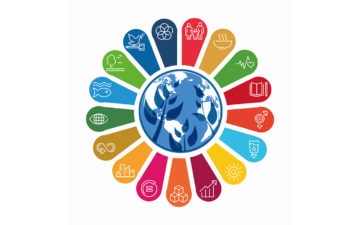Country of Residence
Discipline(s)
GYA Roles
Institution
University of Georgia
Department of Economics and Department of International Affairs
Terry College of Business
600 S Lumpkin St
Athens, GA 30605
United States
Research Interests
Development Economics, Public Economics, Labor Economics, Political Economy, the Economics and Politics of Poverty Reduction, Early-Child Development, Household Coping with Weather Shocks, Gender Bias in Intra-Household Resource Allocation, Corruption, Human Trafficking, Policy Evaluation and Evidence-Informed Policy Advice
Topics to speak on:
the economics and politics of poverty reduction and program design, public-works programs, the causes and consequences of son preference, how households cope with weather shocks, political and economic incentives in policy design and implementation, causal inference with experimental and non-experimental statistical methods, political dynamics in the development process, measuring and addressing human trafficking, sustainable development, systems thinking, capacity building for science advice
Biography
Laura holds a joint position as a tenured associate professor in the Department of Economics and the Department of International Affairs (Political Science) at the University of Georgia in the United States. She is also the APRIES (African Programming & Research Initiative to End Slavery) Labor Economist and International Migration Expert at the Center on Human Trafficking Research & Outreach (CenHTRO), and a Fellow at the Global Labor Organization (GLO). Since June 2022, she is one of the Co-Leads of the GYA Science Advice Working Group.
Born and raised in Germany, Laura received her BA in Philosophy, Politics and Economics (PPE) from the University of Oxford, and her MA and Ph.D. in Economics from the University of Michigan. Her work focuses on two areas: Studying the economic and political impacts of large government policies in developing countries to generate a holistic picture of how anti-poverty efforts can be made more effective; and understanding how households deal with economic shocks, particularly with respect to job opportunities, labor trafficking as well as the allocation of resources to women and girls. Most of her work is at the intersection of economics and political science with other social science disciplines like development studies, social work, and education and health policy. Her work has been published in top general interest and field journals in economics and in the leading interdisciplinary development outlets.
Laura has evaluated the effectiveness of many of the most important government policies in India. These include determining the impacts of the world’s largest anti-poverty program, the Indian Government’s National Rural Employment Guarantee Scheme (NREGS), on labor market outcomes, political competition and elections, insurgency-related violence, and corruption; analyzing the benefits of girl child conditional cash transfer (CCT) programs that seek to combat son preference by paying parents for investing in their daughters; and estimating the effects of India’s switch from a sales tax to Value-Added Tax regime on tax revenue and firm sales, one of the most ambitious tax reforms in history.
In addition to her work on India, Laura’s current research also focuses on improving the measurement and combat of labor trafficking in Malawi and Zambia and on understanding the long-run health, education and labor-market outcomes of early-life shocks in Indonesia, among other projects. She is also passionate about building capacity on evidence-informed policy advice (science advice) for young researchers around the world.
Activities

